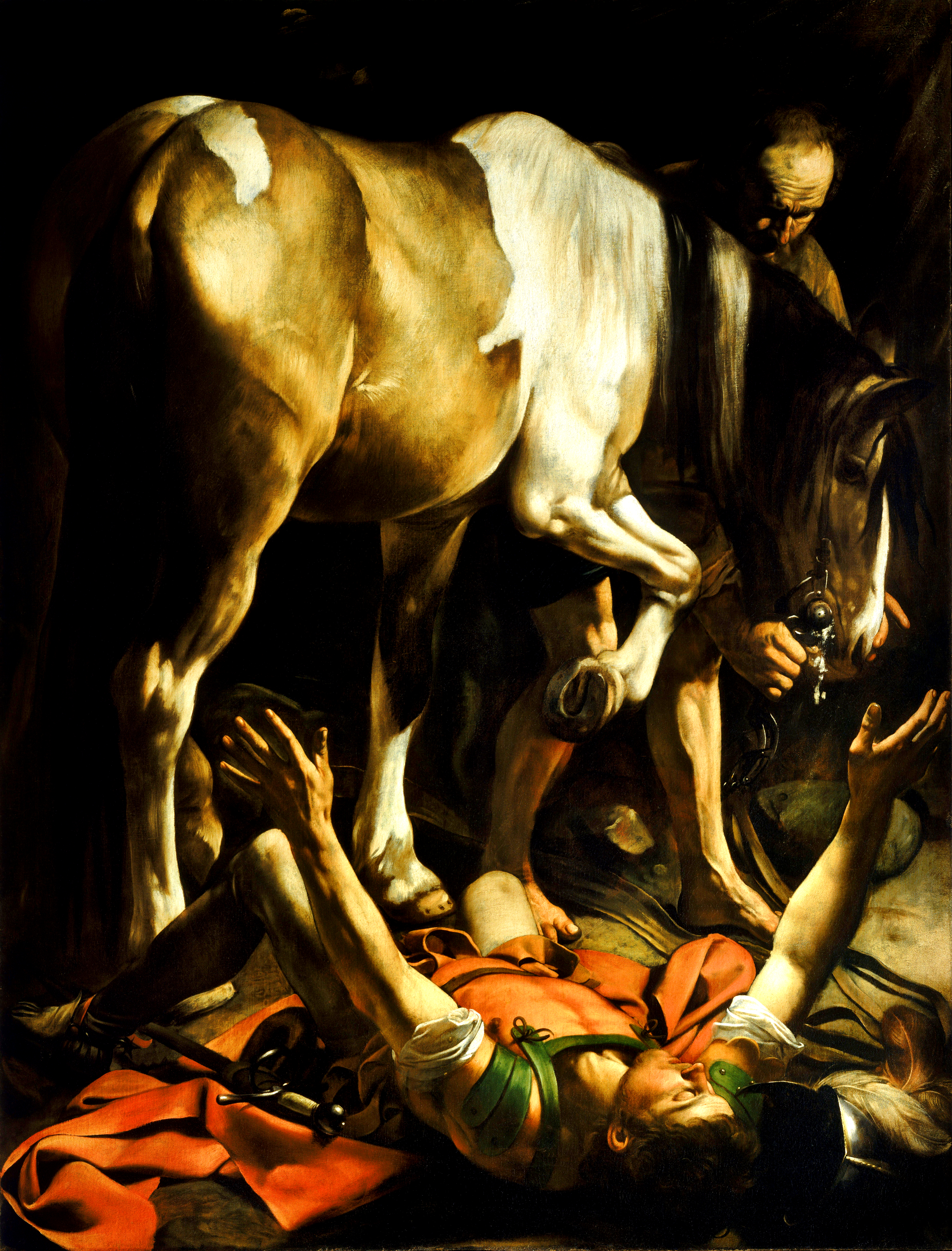Blinded by the light
Â
Â
The Conversion on the Way to Damascus – Caravaggio
Today is the Feast of the Conversion of St. Paul. He has always been one of my very favorites, for everything that he was and did.
After he was struck down by a brilliant flash of light on the road from Jerusalem to Damscus, Syria, he went out on three separate missionary journeys and wrote great teaching letters — all to reach the known world with passion for Christ and for spreading the truth. This is a great account of that zeal, his famous address in the Greek Areopagus:Â
So Paul, standing in the middle of the Areopagus, said: “Men of Athens, I perceive that in every way you are very religious. For as I passed along, and observed the objects of your worship, I found also an altar with this inscription, ‘To an unknown god.’ What therefore you worship as unknown, this I proclaim to you… (Acts 17:22-23)
Note how charitably he starts out. His inspiration is one of the reasons I try to follow the practice the motto ‘Assume good intentions’ (until someone proves otherwise).
Do you have any idea how far and wide St. Paul traveled back then to spread the news of the Gospel and change hearts and minds? Check out this map and follow the locations. And then think about doing that in the time between about 45-57 A.D., when he was most prolific. That’s astounding.
Paul was an incredible apostle, considered to be the greatest evangelist who ever lived. Pope John Paul II made him the example for “the new evangelization” in the modern world when he wrote his Apostolic Letter “Rapid Development.”
Many challenges face the new evangelization in a world rich with communicative potential like our own. Because of this, I wanted to underline in the Encyclical Redemptoris Missio that the first Areopagus of modern times is the world of communications, which is capable of unifying humanity and transforming it into – as it is commonly referred to – “a global villageâ€. The communications media have acquired such importance as to be the principal means of guidance and inspiration for many people in their personal, familial, and social behavior. We are dealing with a complex problem, because the culture itself, prescinding from its content, arises from the very existence of new ways to communicate with hitherto unknown techniques and vocabulary.
It is a complex problem, because the media that form people’s thought and guide their behavior are not showing respect-or even awareness-of so great a responsibility. But media are more powerful than ever.
Ours is an age of global communication in which countless moments of human existence are either spent with, or at least confronted by, the different processes of the mass media. I limit myself to mentioning the formation of personality and conscience, the interpretation and structuring of affective relationships, the coming together of the educative and formative phases, the elaboration and diffusion of cultural phenomena, and the development of social, political and economic life.
The mass media can and must promote justice and solidarity according to an organic and correct vision of human development, by reporting events accurately and truthfully, analyzing situations and problems completely, and providing a forum for different opinions. An authentically ethical approach to using the powerful communication media must be situated within the context of a mature exercise of freedom and responsibility, founded upon the supreme criteria of truth and justice.
I love that. So much in fact, I made it the ‘mission statement’ of my radio show, ‘The Right Questions,’ and the foundation of all my work as a journalist, including what you read here in the Forum. I have no doubt that if St. Paul were alive today, he’d be using the internet, print and broadcast media-and everything else available to him-to take the message of truth and justice to the ends of the earth. And to turn hearts and minds to the light of the known God.

